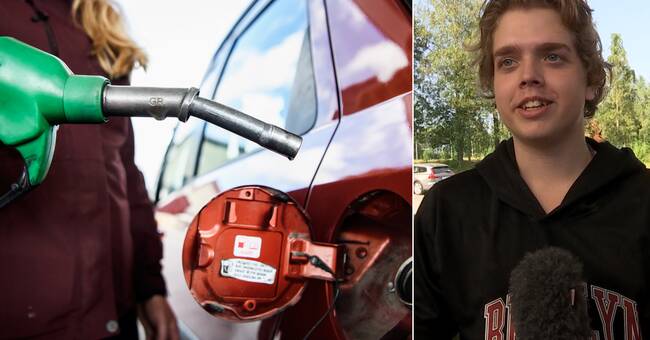Car transport emissions will be reduced by 70 percent by 2030. That is why the government has introduced a so-called reduction obligation - a law that forces fuel companies to gradually mix more and more renewable biofuels in petrol and diesel.
Today, there are close to three million cars in Sweden that run on petrol, including some hybrids.
Despite the fact that electric cars are sold like never before, only 4-5 percent or 200,000 of all cars are electric cars or plug-in hybrids.
Every electric car makes big climate gains, but the amount of electric cars is still so small that the mixture of ethanol in petrol has a greater impact on the climate.
- Here and now, it makes greater climate benefit that we use E10 than all electric cars together, says Johan Andersson, CEO of the industry organization Drivkraft Sverige.
US and Brazil predecessors
Sweden is late in increasing the mixture of ethanol.
Already, 14 other EU countries have increased to 10 percent, and in the US and Brazil you often get 20 percent ethanol, or more, in the tank if you buy regular gasoline.
At the same time, the mix of biodiesel at the diesel pump will increase from 21 to 26 percent.
Here, the proportion will increase faster and provide even greater climate benefits.
Already today, 1.5 billion liters of diesel have been replaced by biodiesel, FAME and, above all, HVO.
With increased demands, it will be 2.5 billion liters already in 2024;
and by 2030, two thirds of all diesel used in traffic must be climate - adapted biodiesel.
And even then, biofuels provide more climate benefits than electric cars, according to the Swedish Energy Agency, as their forecast says that 65 percent of the cars that roll in 2030 will have an internal combustion engine.
- By 2030, it will be biofuels that provide the largest share of the reductions in CO2 emissions.
Then from 2030 to 2045, electricity and electric fuels will give the continued reduction towards zero, says Johan Andersson at Drivkraft Sverige.
E 10 petrol does not work in all models
Are all biofuels good for the environment?
Historically, there have been concerns about ugly ethanol and biofuels coming from devastated rainforests and palm oil.
But according to the industry and the Swedish Energy Agency, today the EU's requirements are a good guarantee that biofuels have good environmental effects.
- The EU's requirements are both about significantly reduced carbon dioxide emissions and that raw materials are produced in a way that is sustainable for the environment, says Sara Sundberg, unit manager at the Swedish Energy Agency to SVT.
There are also fears that not all engines will be able to handle 10 percent ethanol, but according to the car manufacturers, there are only a few models where it is not safe to use E10 petrol.
These are often cars from before 2000 and most petrol stations will at the same time continue to sell petrol with a lower ethanol content.
- We will have a 98 octane petrol with a maximum of 5 percent ethanol on virtually all our gas stations, says Maria Philipsson at Circle K.
Javascript is disabled
Javascript must be turned on to play video
Read more about browser support
The browser is not supported
SVT does not support playback in your browser.
We therefore recommend that you switch to a different browser.
Read more about browser support
L-2021-0730-VOD-NYTTBRANSLE

